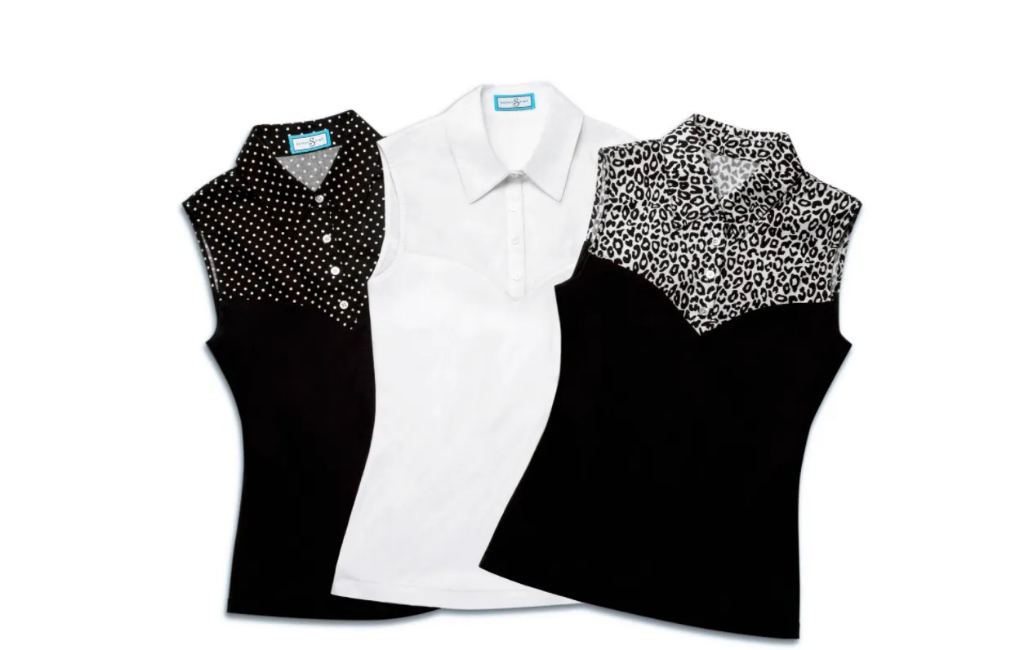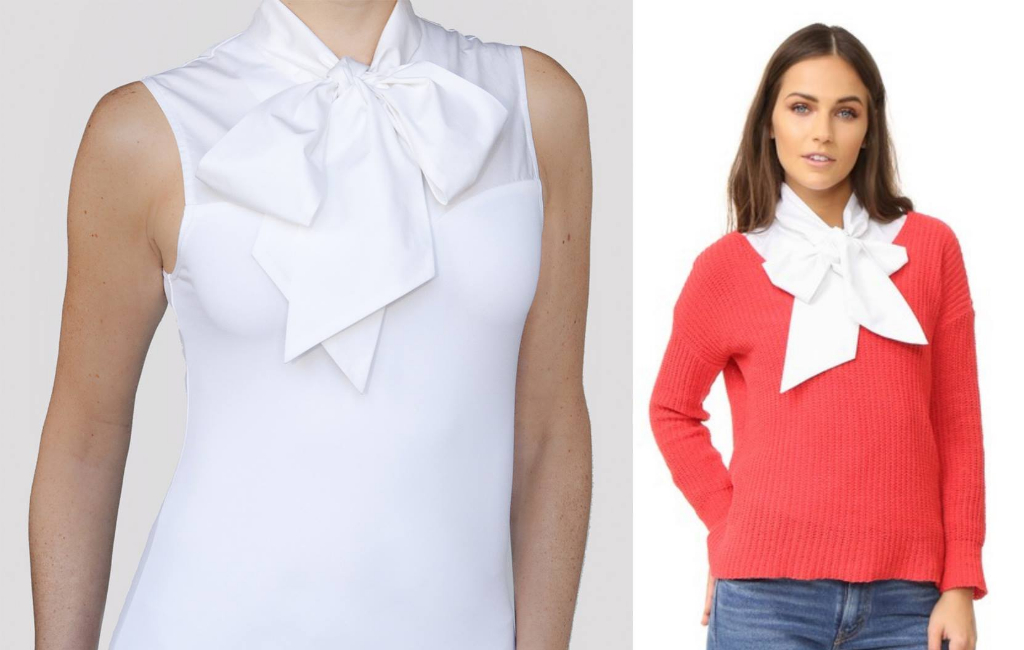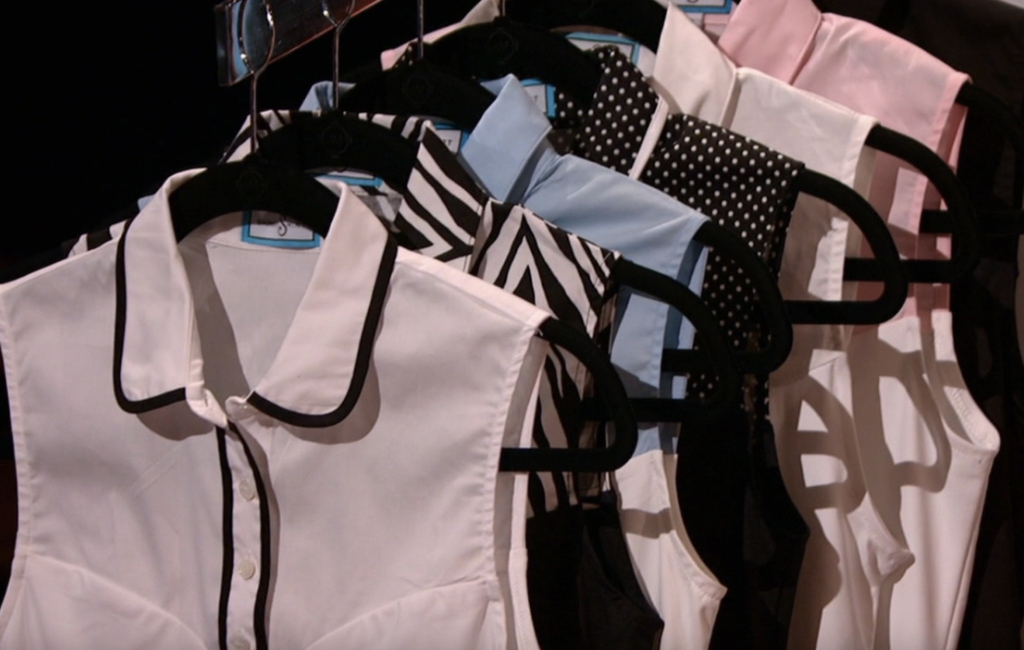Skinny Shirt – Sleeveless Collared Shirts

NO DEAL
EPISODE SUMMARY
🕓 Air Date: January 9, 2015
Asking For:
$100,000 for 20%
Investor:
No Deal
Deal:
No Deal
PRODUCT SUMMARY
SkinnyShirt combines the classic button-down shirt with a stretchy knit cami to eliminate bulk, providing a sleek and slim appearance for women.
WATCH HERE
IN A RUSH?
Click these to jump to the section you want to read.
Background Story
Julie Kalimian, the entrepreneur behind SkinnyShirt, hails from New York and brought her innovative product to the Shark Tank stage. Julie’s journey into entrepreneurship began after spending over 15 years in the corporate world, primarily in the field of publishing. A mother of four children, Julie transitioned to being a stay-at-home mom and embarked on a creative venture that would address a common problem faced by many women. The inspiration for SkinnyShirt struck Julie when she observed the frustration women experienced when trying to achieve a sleek and slim appearance while layering clothes.

The classic combination of a button-down shirt and a stretchy knit cami became the ingenious solution to eliminate the bulkiness associated with layered outfits. Julie’s background in fashion or textiles was limited, as she did not come from that industry but rather from publishing. The concept of SkinnyShirt was born out of necessity, aiming to provide women with a practical and stylish solution to enhance their appearance. Recognizing the challenges of layering without looking bulky, Julie’s entrepreneurial spirit led her to create a unique garment that combined two wardrobe staples.

This innovative approach showcased her ability to identify a common issue and devise a creative solution. Despite facing setbacks, including manufacturing challenges and inventory issues, Julie’s determination remained unwavering. The presentation on Shark Tank highlighted her resilience and commitment to SkinnyShirt, emphasizing its patent-pending design and unique position in the market. Julie’s journey from a corporate career to a stay-at-home mom turned entrepreneur showcased her versatility and innovative thinking in addressing everyday fashion challenges.

The Product
SkinnyShirt, presented by Julie Kalimian on Shark Tank, is a revolutionary garment designed to address the common problem of looking bulky when layering clothes. Combining the classic button-down shirt with a stretchy knit cami, SkinnyShirt eliminates the need for additional layers while providing a sleek and slim appearance. The stretchy knit cami acts as a shaper, smoothing and holding the wearer to create a polished look.
The versatility of SkinnyShirt allows it to be paired with various clothing items, including V-necks, crew necks, blazers, cardigans, and it’s even stylish enough to be worn alone. The product’s design is patent-pending, making it unique in the market. It feels like a second skin, offering comfort while enhancing the wearer’s silhouette.
SkinnyShirt is available for purchase on the company’s website, where 2/3 of the sales are made directly to customers. It also has a presence in 75 boutiques across the U.S. and Canada, with 1/3 of sales coming from wholesalers. The product’s strategic combination of fashion and functionality positions it as a unique and innovative addition to women’s wardrobes.

How It Went
The company’s position before Shark Tank
SkinnyShirt has demonstrated both successes and challenges in its performance. Over the last three years, the company has achieved sales totaling half a million dollars, showcasing initial traction and market interest in the innovative garment. However, the current year’s projection stands at $200,000, indicating a decline in sales. The company has established partnerships with 75 boutiques in the U.S. and Canada, serving as wholesalers for SkinnyShirt. This distribution channel accounts for 1/3 of the sales, showcasing the brand’s reach beyond direct-to-consumer transactions. The remaining 2/3 of sales come from the company’s website, where customers can purchase the product directly.

SkinnyShirt’s founder, Julie Kalimian, mentioned facing manufacturing challenges in the past due to an untrustworthy manufacturer introduced by a trusted friend. This setback impacted the company’s financials and led to a drop in sales. Despite this, Julie expressed confidence in a newly sourced manufacturer in Asia, proposing a reduction in manufacturing costs from $12.75 to $9.50 per shirt. The company’s funding sources were not explicitly mentioned in the transcript. However, Julie was seeking $100,000 for a 20% equity stake during her pitch on Shark Tank, indicating a potential need for capital to facilitate manufacturing and distribution efforts.

The available capital, profits, and losses were not detailed in the presentation. SkinnyShirt’s structure revolves around its online presence, direct-to-consumer sales, and partnerships with boutiques, showcasing a hybrid approach in reaching its target audience. Despite facing challenges and fluctuations in sales, the company aims to rebound with a new manufacturing partner and continue expanding its market presence. The Sharks, however, expressed concerns about the founder’s ability to manage the business effectively, leading to a decision not to invest in the venture.
The Negotiations:
The negotiations for SkinnyShirt on Shark Tank were marked by a mix of interest, skepticism, and ultimately, a unanimous decision by the Sharks not to invest. Julie Kalimian entered the tank seeking $100,000 for a 20% equity stake in her business. Questions about the company’s performance, particularly the drop in sales and past manufacturing challenges, were raised by the Sharks. Julie explained that the dip in sales was due to inventory issues and logistical challenges, including a manufacturing setback caused by an untrustworthy manufacturer introduced by a trusted friend.

Despite overcoming these challenges and securing a new manufacturer in Asia, concerns were raised about the company’s financial stability and its ability to manage cash effectively. The Sharks expressed reservations about SkinnyShirt’s numbers not adding up and questioned the founder’s plan for the future. Mark Cuban delved into the financial details, highlighting a discrepancy between the past two years’ challenges and the company’s overall performance. Lori Greiner acknowledged the product’s merit but expressed doubts about the founder’s ability to manage the business effectively. As the negotiations unfolded, the Sharks collectively decided not to invest in SkinnyShirt.

Reasons cited included inconsistency in the company’s performance, financial challenges, and doubts about the founder’s ability to navigate the business successfully. The Sharks emphasized the importance of having a clear plan and effective cash management. Despite the rejection, Julie remained confident in SkinnyShirt’s potential and expressed determination to make it a huge success. The Sharks, however, did not see the investment as a viable opportunity given the uncertainties surrounding the company’s performance and management capabilities.







